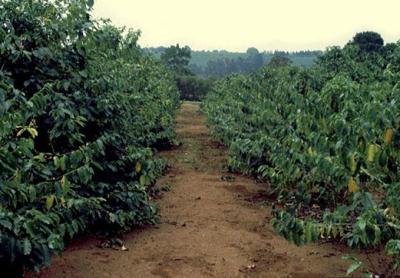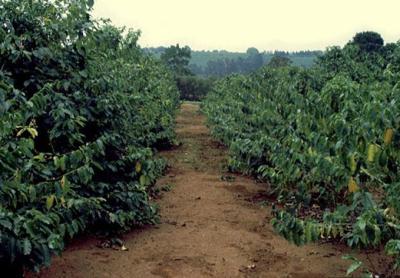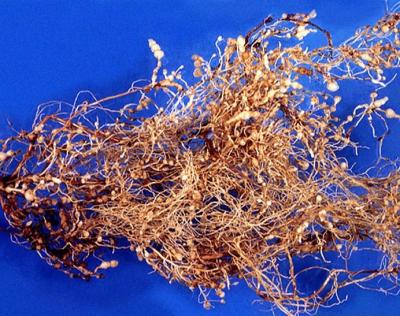


Root-knot nematodes (<i>Meloidogyne</i> spp.)
Important nematodes attacking both Arabica and Robusta coffee are Meloidogyne arenaria, Meloidogyne decalineata and Meloidogyne incognita, causing root knots and galls. Other nematode species include Pratylenchus coffeae, Radopholus similis, Rotylenchus iperoiguensis and Rotylenchus pararobustus.
Field symptoms are typically of stunted, poorly growing plants with yellowing leaves. Infected root systems show characteristic knots or galls, the severity of which varies with the degree of nematode infection and species and variety of plant parasitized. Strategies of cultural control are less well developed and crop rotations are difficult to design because of the wide host range of Root-knot nematodes. Groundnuts or maize, which are both poor or non-hosts to M. incognita, have been evaluated for use in cropping systems designed to manage this nematode.
- Ensure seedlings are nematode-free prior to transplanting
- Incorporate neem extracts into the seed beds where nematode problem is known to occur
